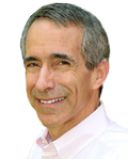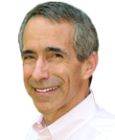
Sleep
How to Get Off Sleeping Pills
"Normal" sleep is not natural sleep.
Posted January 17, 2013 Reviewed by Jessica Schrader
In America alone, tens of millions take sleeping pills to rest each night. Yet sleeping pills don’t produce natural sleep. They worsen memory. They increase the risk of death.
But people can’t stop. Physically or behaviorally addicted, they know pill = sleep.
Here are some reasons why that happens - and what they can do about it.
“Normal” Sleep Is Not Natural
Whether you look at historical diaries or put people in laboratories that mimic pre-industrial nights, sleep occurs in three phases. In olden days—not so long ago—people slept from near the beginning of the night until the middle. Then they woke for perhaps an hour—reading, musing, doing housework. Later they took a nap in the mid-afternoon.
The American “lie down and die model” of six and three-quarter hours of sleep sandwiched between late-night emails and booming alarms may be efficient. It may be economically effective, our new version of “normal.”
It is not natural. Sleep is naturally tri-phasic.
Sleep Is About Conditioning
One of the most common forms of insomnia is caused by worrying and thinking about lack of sleep.
Or, as the manufacturers advertise, you can just take a pill.
The truth is that your body wants to sleep. It needs to sleep. It will die without sleep. It performs inadequately with inadequate sleep.
So you need to see that sleep rests your body, letting it learn and renew while you slumber.
It pays big time to use your body the way it’s built. Body clocks want you to sleep during set, genetically in-built hours.
Try to let them have their way. Time rules life. As does habit.
So go to bed at the same time every day. Get up at the same time. Calm your body and brain before you sleep. Do it with ritual: turn off the computer monitors, tablets and TVs. Click off the cell phone. Turn down the lights. Floss your teeth. Brush. Read a book you fondly remember from high school. Then imagine the dreams you want to have. Write them down. See them in your head.
Sleep is not a religion nor an obstacle, just as necessary for life as food. Done right, it can be lots of fun.
Dream sleep is necessary to memory and learning. In dreams begin possibilities.
Rest to Regenerate
One of the most pernicious myths of modern medicine is the body as a machine.
Machines are fixable, right? All you need is the right pill or the right device. Then everything can work—again.
But you’re not a machine. Don’t treat yourself like one.
Machines are dead.
Your computer’s hard drive doesn’t remake itself.
Your heart does. Most of it is remade in about three days. Most of your body takes a few weeks to replace and remake itself.
And you—your body and mind—never stay the same. Not any part, nor your ideas. Every time you retrieve a memory you change it. Even the autobiography you tell yourself changes all the time.
That adaptability helps you stay alive. Bodies continually and continuously remake themselves. That’s how they adjust to aging, the different environment, time and life.
This may explain why sleeping pills increase death through accidents, heart disease, and if Dan Kripke’s data can be believed, cancer. His rising dose-response curve shows regular pill use increasing death rates five times.
Even if they add perhaps 10-20 minutes of sleep, sleeping pills don’t produce natural sleep. The human regenerative system is vast, fast, powerful and complex. The sleep produced by sleeping pills may not be the ticket for what it takes to remake you. Sleeping pill “sleep” may not regenerate you as well as natural sleep.
Their success is also part illusion. Sleeping pills worsen memory. That includes memories of waking up.
Using sleeping pills is an experiment on yourself. Your memories will change. Some will disappear.
We live and die as information systems. What’s left of us at the end of the day but our memories?
Taking It Off One Pill At A Time
Getting people off sleeping pills is hard. I’ve been doing it for over a quarter-century. One of my hardest jobs was getting a 95-year-old off her pills.
She had been taking sleeping pills for 65 years. I didn’t see her much, and it took more than three years to get her to stop.
You don’t need to take three years. Whether you can’t sleep because of depression or anxiety, sleep apnea or nightmares, alcoholism or ending drinking, you can try to stop on your own. And professionals can help—a lot.
As in health, the trick is to not get sick. So you go off slowly.
Let’s take the most commonly used sleeping pills, zolpidem or Ambien. The government just belatedly recognized that the drug really sticks around by morning—particularly in women.
So it suggested halving the doses of women. Right now.
Except time should be your ally in going off pills. Most times you don’t have a forced deadline. So here’s a conceptually simple way to get off pills: Whatever sleeping pill your own, get it in the form of the lowest-prescribed dose. If you’re taking 10 mg of zolpidem, the smallest generic dose is 5 mg. If you’re taking 10 mg every night, take that “normal” dose six days of the week. On the seventh day, take 5 mg—half your regular dose.
The next week, make it two days of the week when you cut the dose to 5 mg. The third week, make it three days of 5 mg.
Repeat.
You can speed this process up or slow it down – depending on how you feel. You can slice doses into halves or quarters or pills. Repeat doses after a tough week.
But keep going. It may get rough towards the end. Going off pills completely is often is the hardest part.
Yet consider the benefits. Less money. Less prescriptions. Less feelings of addiction and helplessness. More normal, natural sleep.
You’ll be using your body the way it’s built. Helping it regenerate right. Living a more natural life.
And probably a healthier, more memorable, longer one.



